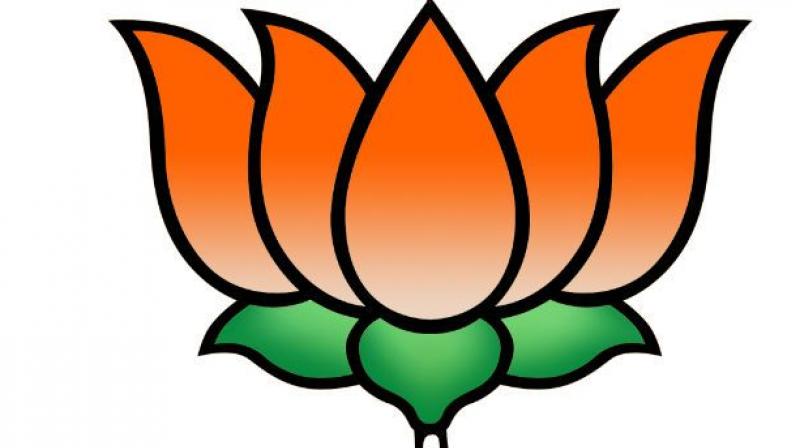Corruption: New front against BJP?
Rijiju has pooh-poohed the charges, even going far as to say that anyone who says he is corrupt will be beaten with shoes by people' in his village.

Last year in July, the media was agog with stories about how Sushma Swaraj had helped Lalit Modi get travel documents from the British government. Mr Modi at the time was in Britain with his passport cancelled by India and Ms Swaraj’s letter to the British government let it be known that should they help him go to Portugal to visit his ailing wife, India would not object. This became a huge controversy, more so since it appeared that Ms Swaraj’s daughter had represented Mr Modi in the courts. There was a strong whiff of conflict of interest, to say nothing of the fact that a minister of the Indian government had requested the British government on behalf of a fugitive, but Ms Swaraj’s government stood by her, saying she had helped Mr Modi on “humanitarian” grounds. Around the same time, the Congress had alleged that Mr Modi had invested money in a company owned by Vasundhara Raje’s son. That Ms Raje and Mr Modi had been close was fairly well-known in Rajasthan and in cricket circles, but once again, the BJP defended her.
Both these incidents had cast a shadow on the Narendra Modi government, which had come to power promising probity and an intolerance for corruption, but the storm eventually passed. In its two-and-a-half years, there have been remarkable U-turns, appropriation of UPA policies, even policy blunders and ministers with a penchant for sticking their foot-in-their-mouths, but no instance of corruption or a scam. The one or two instances, such as Vyapam in Madhya Pradesh and the purchase of government land by a minister in Maharashtra have been in the states, and in any case the former scandal was from a time before Mr Modi became the Prime Minister. He could, and did, say that his government was clean, specially when compared to the UPA, whose name was associated with huge scams. But now the C-word has made its appearance. minister of state for home Kiren Rijiju, has been targeted for recommending the clearance of bills of companies owned by a relative. Well-known lawyer Prashant Bhushan has released documents purportedly from two big business groups which allegedly claim that payments were made to several politicians, including state chief ministers and local politicians.
Some names are given, others can easily be conjectured and the BJP as well as the Congress figure in it. The list is apparently signed by a senior income-tax officer, implying that an official has, at least, seen and acknowledged it, even if not endorsed it. It should not be difficult to call the officer and get her version, but so far there has been little movement on it. Now Rahul Gandhi has directly charged the Prime Minister with corruption. These are the kind of allegations that politicians hurl at each other all the time and which are impossible to prove conclusively. Said in Parliament, such comments are privileged, but Mr Gandhi has not yet spoken in the House, claiming he is not be allowed to do so. Outside, apart from declaring he can cause an earthquake, he has kept mum about the details. It should be recalled that during the height of the last election campaign, Arvind Kejriwal had declared that all politicians were corrupt, including Mr Gandhi as well as Mr Narendra Modi, but by then the AAP leader had become known for his unsubstantiated allegations, so no one took it seriously.
But while Mr Gandhi’s claim too will be greeted with some scepticism, to say nothing of ridicule, politically, it has implications. At a time when the government and the Prime Minister are being attacked for their poor handling of demonetisation and the chaos it has caused all over the country, Mr Gandhi has chosen to talk about corruption. Not just that, he has gone after that one thing that the Prime Minister is proud of — his clean image. Mr Narendra Modi has made it a point to show how simple he is and spoken about his crusade against corruption no one has forgotten his “na khaoonga na khane doonga” remark and the country has believed him. While other politicians are seen as corrupt, the Prime Minister is not. Yet, his next steps will be important. While he can dismiss Mr Gandhi’s allegations, and his colleagues are already on the job, he will have to tread a bit more tactically as far as the Rijiju case is concerned.
Mr Rijiju has pooh-poohed the charges, even going far as to say that anyone who says he is corrupt will be “beaten with shoes by people” in his village. Defiant words these, but they are no answer to the strong claims being made by not just politicians but also a civil servant. How will Mr Narendra Modi deal with his young minister, who is a crucial element in the party’s Northeast strategy? In Eknath Khadse’s case in Maharashtra, the chief minister ensured that he quit pending an inquiry. Mr Khadse was a threat to Devendra Fadnavis, so it was quite convenient to let him go. Shouldn’t Mr Rijiju be asked to step down while an inquiry is held? How would have the BJP reacted if the situation was reversed and had it been a UPA minister? Halfway through the government’s term, corruption has reared its head. This is not to say that any of the charges are true or that there are scams waiting to be discovered, but at the very least, a new front has opened up. Any mention of corruption strikes at the very foundation of this government and can make a dent in its credibility. It is almost certain that from now on, Opposition politicians, especially the feistier ones, will now be on the lookout for any other possible cases of misdemeanour or worse.

